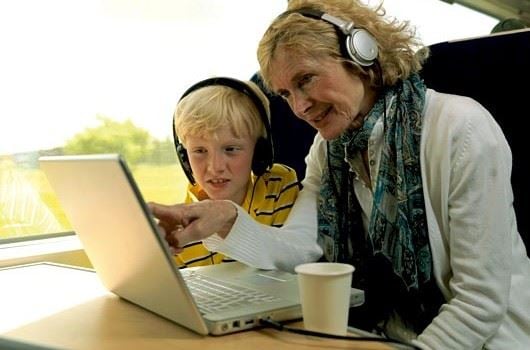At the office or the airport, or sitting in Starbucks, we have access to a high-capacity wireless network. We can easily watch a video on the PC screen. But as soon as we move out of range, we only have 3G or UMTS (Universal Mobile Telecommunications System), which have less than 15% of the capacity of a wireless network. And out in the country we may only have GPRS (General Packet Radio Service), which has even lower capacity.
Fifteen partners in the EU’s “Music” project are in the process of changing all this by designing the foundations for new software. SINTEF is leading this project, which will ensure that in the future, programmes will adapt themselves to changes in battery levels, variations in network efficiency and other factors, so that we can continue working without problems.
Self-adapting
“It is all a matter of capacity, network access and resources,” explains Geir Horn of SINTEF ICT. The idea behind “Music” is to make the PC carry out certain actions. It will get the software to adapt itself to physical factors such as battery and network capacity, or shape patterns of use that give a particular application much more machine capacity than others.
“There is an incredible number of combinations of actions that a computer can perform, depending on what networks and battery capacity you have,” says Horn.
One example is picking up your mail when you are on a journey, particularly emails with attachments. If the machine downloads emails in the usual way, large attachments can take a great deal of time to download. This may mean that you just give up and perhaps never get to read the important letter that is waiting for you at the end of the queue.
“With this project, the software will realize that you have poor network capacity, so it will block downloads of large attachments and ensure that you only see the subjects and senders of emails. This will let you choose yourself which messages you want to download completely,” explains Horn.
For release next year
Last August, the project presented the first version of “Music” – the platform that can be used to develop the next generation of adaptable software for portable PCs. The final release will be some time in 2010.
“We will be seeing more smart programs in the future, and perhaps a lot of the frustration experienced by today’s users of portable PCs will be reduced,” Geir Horn says.
Åse Dragland

